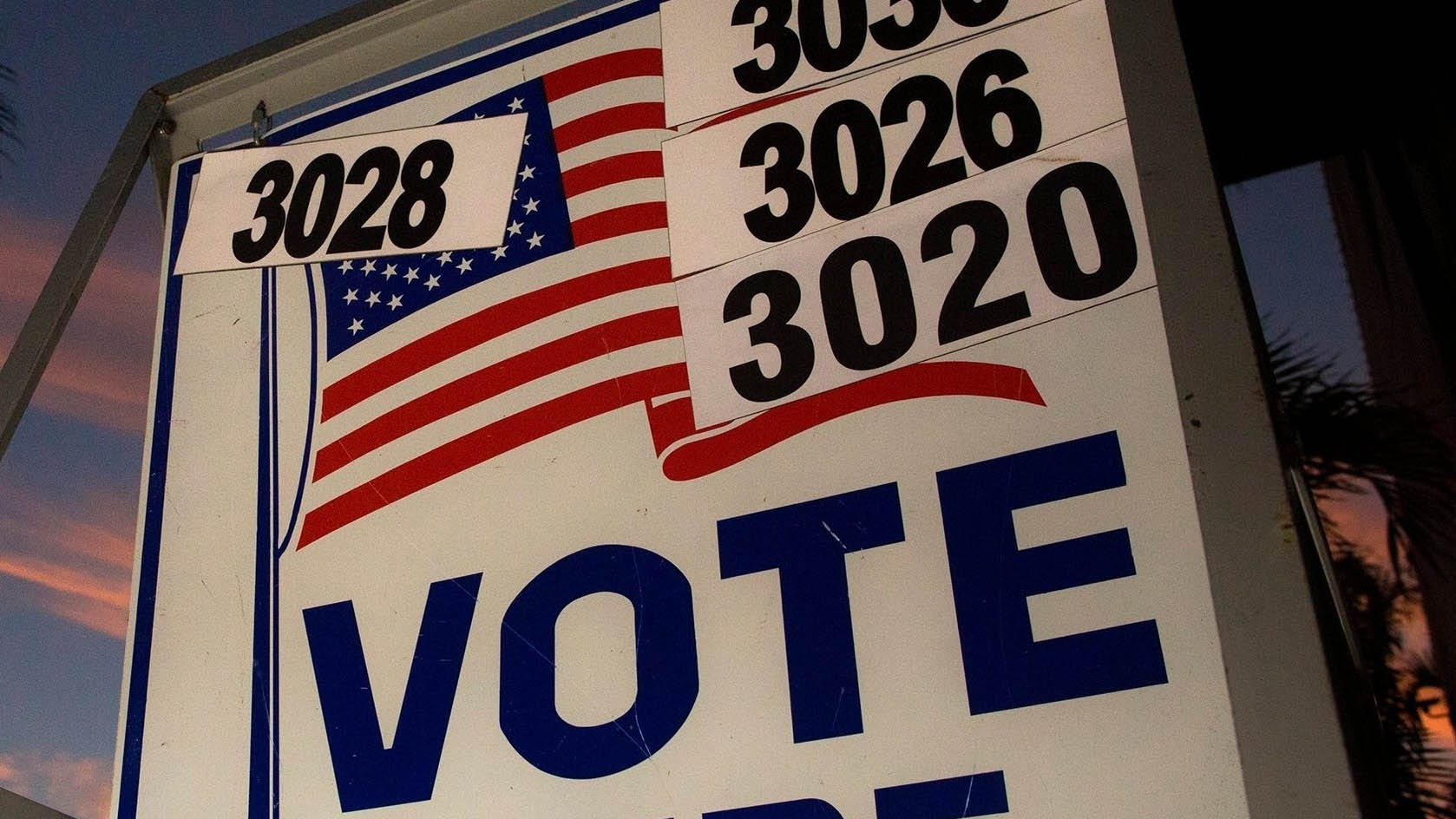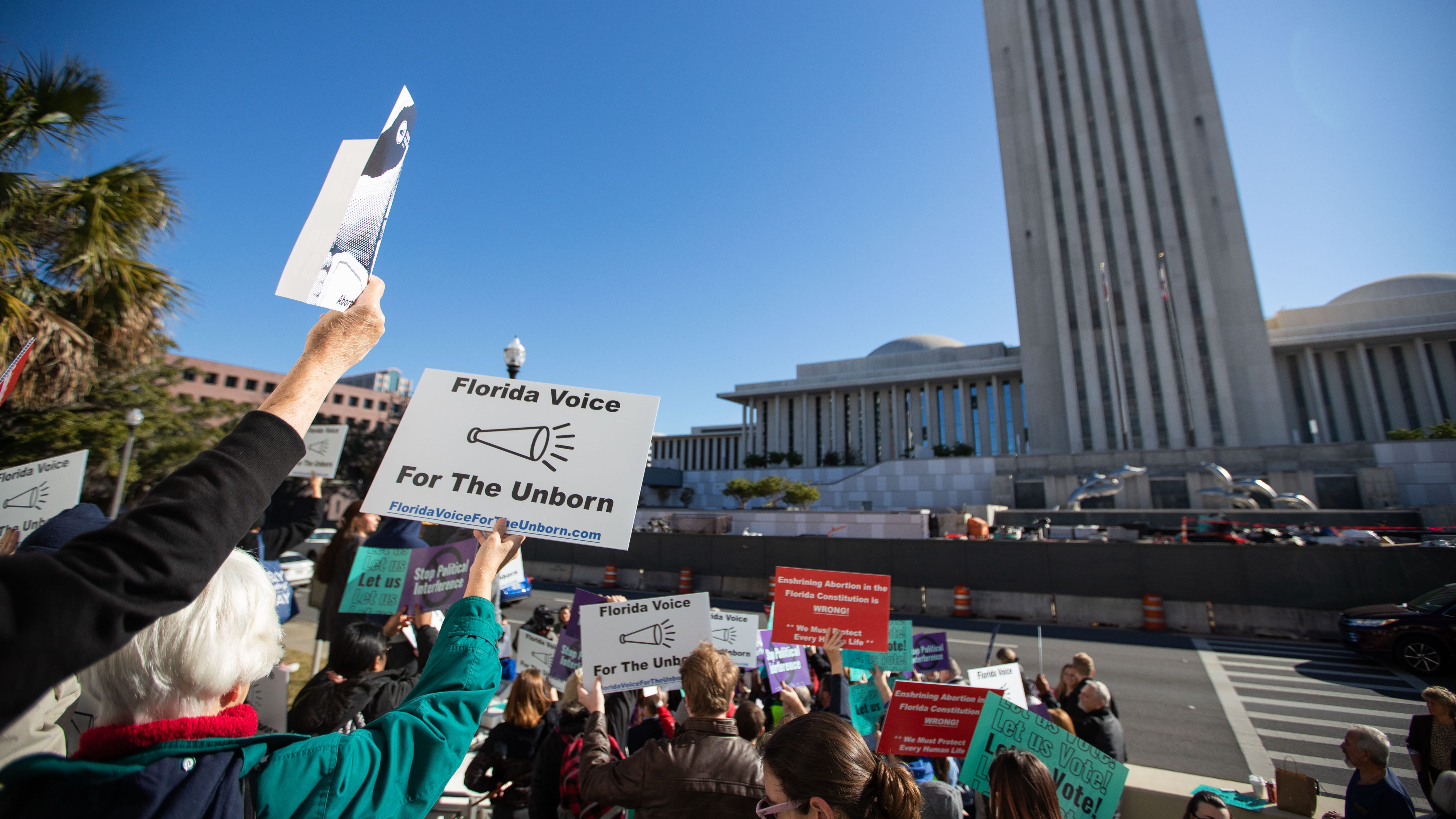While the nation is anxiously awaiting election results that will tell them who will lead the United States for the next four years, Floridians will be keeping their eyes on the results of six constitutional amendments. There's a pretty good chance that we'll get a strong snapshot of how Florida feels about each of the six constitutional amendments on the ballot when results begin to be published at 8 p.m. ET. Under Florida law, counties are able to begin tabulating their results as they come in, which means early voting and vote-by-mail ballot results will be available right out of the gate. As of 2:26 p.m. on Election Day, nearly 8.3 million Florida voters had either voted early or voted by mail, which is just under 60% of Florida's 13,845,913 registered voters. The preliminary results reported by the state starting at 8 p.m. will be unofficial, however. Counties have until noon on Nov. 18 to send their official returns. Strong early voting numbers could help the state call the results early.
Florida Amendment 3 and Amendment 4: Legalizing Weed and Protecting Abortion Rights
Florida Amendment 3 and Amendment 4, which focus on legalizing weed and protecting abortion rights, have seen the brunt of ire from the state after Gov. Ron DeSantis' administration spent millions in ads opposing both measures and engaging in losing legal battles to remove them from the ballot. DeSantis took flak in the months leading up to the election after he used taxpayer funds to pay for public service announcements attacking the measures, threatened to jail TV stations that aired a pro-Amendment 4 ad and sent law enforcement to the homes of people who signed the Amendment 4 petition. Recent polls surveying Florida residents' support around Amendment 3 and Amendment 4 show that both are favored by the majority of voters, but teeter on the line of gaining the number of votes needed to pass. The Florida Atlantic University Political Communication and Public Opinion Research Lab (PolCom Lab) and Mainstreet Research USA conducted two surveys between Oct. 19 and Oct. 27, reaching 1,850 Florida voters combined. The poll found that Amendment 3, which seeks to legalize recreational pot for adults, has substantial support with 60% of voters in favor, 34% opposed and 4% undecided. Amendment 4, which seeks to enshrine abortion rights in the state constitution, shows significant support, with 58% of voters in favor, 32% opposed and 10% undecided. The poll has a 3.2% margin of error. A University of North Florida's Public Opinion Research Lab (PORL) poll published on Oct. 21 surveyed 977 likely Florida voters between Oct. 7 and Oct. 18. The poll showed high Amendment 3 support, with 66% of voters indicating a “yes” vote, 30% saying they would vote “no” and 4% undecided. On Amendment 4, 60% of the respondents said they would vote “yes,” 32% said they would vote “no” and 8% remained undecided. The PORL poll has a 3.49% margin of error. Florida constitutional amendments require a 60% supermajority to pass.
The Early Voting Numbers and What They Mean
Anxious voters have been wondering when we’ll start seeing election results for the 2024 presidential election almost as soon as early voting began in October. Florida law allows the state to begin counting early voting and vote-by-mail ballots pretty much right away. So, with nearly 60% of registered voters in Florida having already voted, the Sunshine State will likely get a good glimpse at which way the state is leaning. What we aren't likely to see is a clear winner. There’s never been an election where ballot counting wrapped up by the end of election night, according to David Becker, executive director of the nonpartisan Center for Election Innovation & Research.
The Fate of the Amendments: Preliminary Results and What to Expect
Florida Amendment 2, which sought to protect Floridians' right to hunt and fish, passed with 67.3% of the vote. Florida Amendment 3, which sought to legalize recreational weed for adults, failed to reach the 60% supermajority needed to pass. Florida Amendment 4 failed to receive the necessary votes to pass. Florida Amendment 6, which sought to repeal public financing for political campaigns, failed to pass. Preliminary election results for Florida's six constitutional amendments have started rolling in. Amendment 3 and Amendment 4 are both under the 60% supermajority required to pass with over 77% of the estimated vote in. Please note: These are preliminary results as of 7 p.m. on Tuesday. The final numbers will be different as more votes are counted.
The Election Aftermath: What’s Next?
Once considered a pivotal swing state in presidential elections, Florida has proved reliably Republican in recent years. Republican former President Donald Trump has won Florida, defeating Democratic Vice President Kamala Harris, collecting 30 electoral votes. Republican Rick Scott wins re-election in Florida. Scott has secured a second term, defeating Democrat Debbie Mucarsel-Powell, who represented Florida in the U.S. House but lost her reelection bid in 2020. Further down the ballot are a handful of proposed amendments to Florida’s constitution. Amendment 4 would enshrine abortion rights in the state, while Amendment 3 would legalize the recreational use of marijuana. There are also dozens of high-profile local races. There are several other races on the ballot, including high-profile races for sheriff in Palm Beach, Indian River and St. Lucie counties and Amendments 1, 2 and 3 on abortions, marijuana and the right to fish and hunt in Florida. Below are results by county:
What Happens Now?
The Sunshine State’s vote is in, and now Floridians, along with the rest of the country, await the results of a closely watched election. The outcomes of the six constitutional amendments, particularly those on abortion and marijuana, will have far-reaching consequences for the state. While we wait for the final count, one thing is clear – Florida remains a state to watch in the national political landscape. With a new president elected and important decisions made on key social issues, Florida will continue to be a state of significant political interest in the years to come.


















